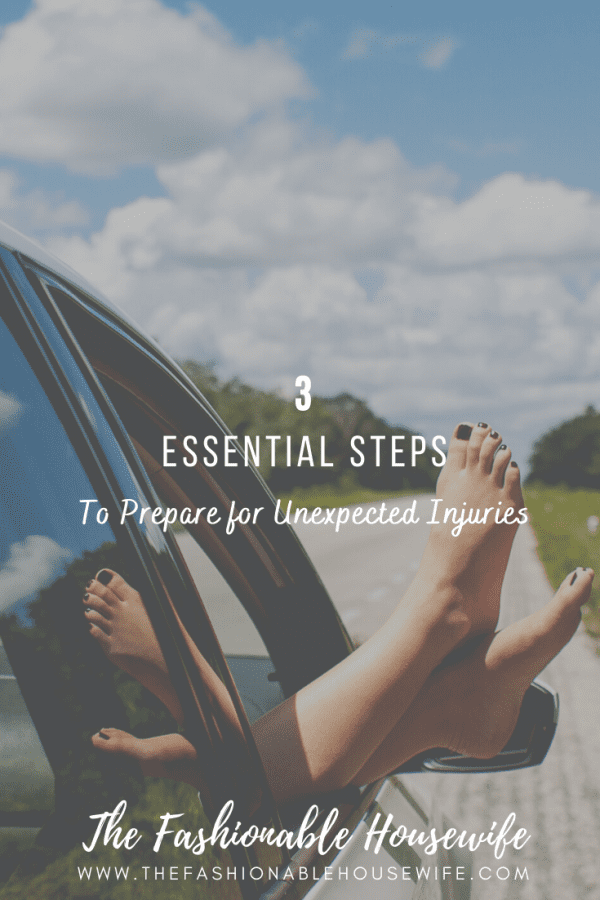
You just witnessed an accident and were called on to help. Now, you’re left with questions and worries. Personal injuries come in all shapes and sizes from dog bites to car wrecks. In fact, the CDC says that every second in the United States, someone receives an injury that could have been prevented.
If you are looking for the proper support for easing the physical, financial, and emotional burdens of unexpected injuries look to a firm like The Epstein Law Firm, P.A. for help. Take these simple steps now to prepare yourself in the event catastrophe comes knocking.
Make Your Body Strong
According to The National Center of Statistics, doctors are needed for over 31 million unexpected injuries a year, and over half of those incidents are not the victim’s fault. Taking care of yourself now is one of the best ways to prepare for unexpected injuries later. Healthy bodies are better able to heal from both physical damage and stress.
The American Heart Association promotes walking as one way to improve your overall fitness. Busy people often join a group to fit exercise and social time into their day. Working out with a buddy has the added benefit of keeping you accountable! Neighborhood associations and community centers also offer programs that are a good way to meet people. In the case of bad weather, check out your local mall. Many malls open early for customers that want to be indoors, and you can catch up on the latest trends while you get in your steps.
Save Your Pennies
It can be hard to save for a rainy day when money is tight, but even the smallest savings can make a big difference when you’re temporarily out of work due to an accident-related injury.
To get started, U.S. News & World Report recommends that you track your spending with the help of free online tools. Then, make a budget and plan for savings. Put your regular bills on auto-pay to avoid late fees, and take a closer look at subscriptions. How many streaming services do you really need, for example?
Reexamine your other regular expense. Look into options for bundling your insurance or internet services. Consider reducing your utility bills by installing energy-saving lightbulbs and water-reducing showerheads as well.
Finally, set up a savings account to collect the money you’re accruing. Consider depositing savings directly from your paycheck. Most experts agree you don’t need six months of total income in your rainy day fund. Instead, you need enough money set aside to cover essentials such as rent and food for a few months.
When you cut expenses for things you don’t need, avoid credit fees, and set aside small amounts of money, your emergency fund will grow.
Know Your Plan
Unexpected injuries cost Americans over $400 billion a year in emergency room visits, medical bills, and loss of work. Knowing some basic information ahead of time can give you more control over the outcome when you are hurt.
For instance, if the accident happened at work, you can consult a workers compensation law firm on how you can get compensated for your work-related injuries.
In the event you sustain a personal injury, you should:
- Write down accident details such as the location, weather, and time of day.
- Ask for names and contact information from the other party or parties involved and anyone who was a witness.
- Save receipts from urgent care or doctor visits.
- Make note of how the event has affected your work productivity, home life, and mental health.
- Keep the name of a trusted personal injury attorney in your list of important contacts.
Thousands of personal injury cases are filed every year. While it’s impossible to predict when and where an accident like a traumatic brain injury may occur, taking measures to anticipate the unexpected can go a long way toward avoiding physical, mental, and financial stress.



